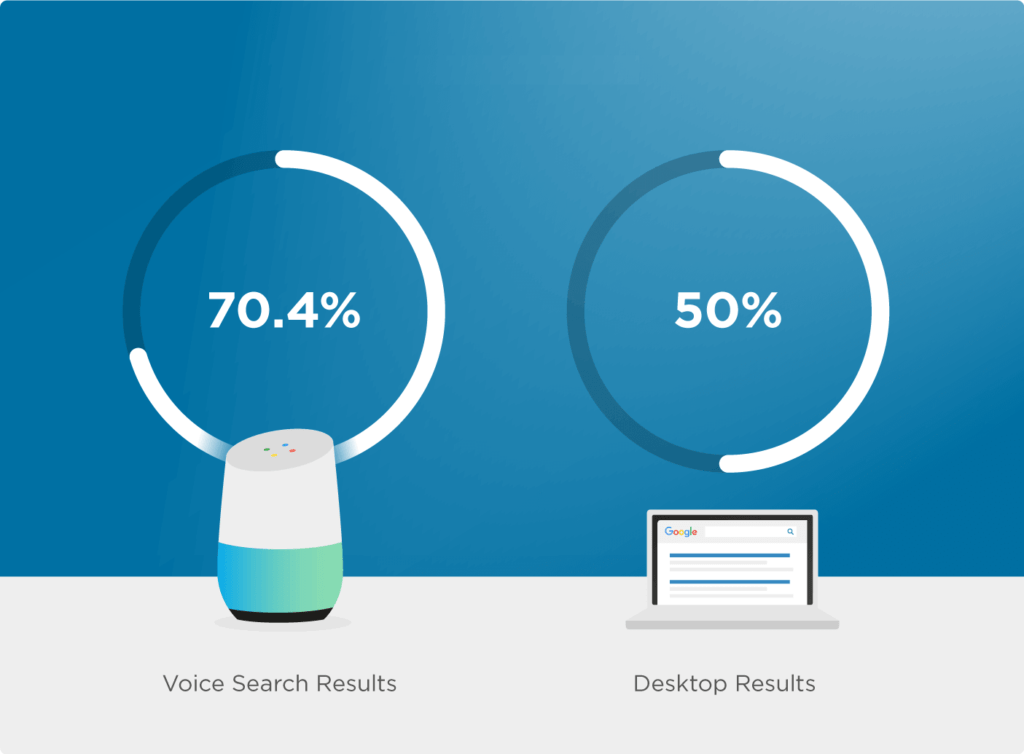
In the ever-evolving landscape of digital marketing, staying ahead of the curve is crucial. One of the most significant shifts in recent years has been the rise of voice search. As more and more people turn to virtual assistants like Siri, Google Assistant, and Alexa, businesses and SEO service providers must adapt their strategies to remain visible and competitive. In this article, we’ll explore what voice search means for the future of SEO, and how it impacts content marketing and digital marketing as a whole.
The technology which allows users to conduct internet searches just by verbally asking the question on a smartphone, a computer or any smart device is known as Voice search. It’s quite different from the traditional way, but the problem is typed into a search box. A search engine, or a digital assistant, will answer a question.

The Rise of Voice Search
Voice search is no longer a novelty; it has become a mainstream way for users to seek information online. The convenience of simply speaking a query rather than typing it has driven its rapid adoption. According to a report by ComScore, it’s predicted that by 2023, 50% of all online searches will be conducted through voice.
This shift presents a significant challenge and opportunity for SEO services and digital marketers. To remain relevant and accessible, it’s crucial to understand the implications of voice search on search engine optimization.
Natural Language Queries
One of the key differences between traditional text-based searches and voice searches is the way people phrase their queries. While typed searches are often concise and use keywords, voice searches tend to be more conversational and natural. For example, a user might type “best pizza NYC,” but when using voice search, they’d say something like, “Where can I find the best pizza in New York City?”
This change in query structure requires SEO services to optimize for long-tail keywords and focus on conversational phrases. Content marketing strategies should also shift towards creating content that answers specific questions in a natural, human-like manner.

Local SEO Gains Importance
Voice search is highly localized. When users ask voice assistants for information, they often seek immediate, location-based results. For instance, someone might ask, “Where’s the nearest coffee shop?” or “Find a gas station near me.”
This places a premium on local SEO. Businesses need to ensure that their online listings, Google My Business profiles, and website content are optimized for local searches. Digital marketing strategies should prioritize location-specific keywords and content that caters to the needs of local users.
Featured Snippets and Position Zero
Voice assistants often read out the featured snippet or “position zero” content as the answer to a user’s query. To increase the chances of your content being selected for this coveted spot, SEO services must structure content for readability and provide concise answers to common questions in your industry.
Creating content in a question-and-answer format can be highly effective for voice search optimization. Additionally, providing clear, structured information that answers “who, what, when, where, why, and how” questions can help your content get selected for featured snippets.

Mobile Optimization is a Must
Voice search is predominantly a mobile activity. Users rely on their smartphones and other mobile devices to interact with voice assistants. Therefore, mobile optimization is no longer optional but a necessity for SEO services.
Mobile-friendly websites that load quickly and provide a seamless user experience are more likely to rank well in voice search results. Digital marketing efforts should focus on mobile-first strategies, ensuring that all content and ads are optimized for mobile screens.

User Intent and Context
Understanding user intent and context is essential for voice search optimization. Voice searches are often driven by specific needs or situations. For example, users might ask for restaurant recommendations while driving or inquire about the weather while getting ready in the morning.
To cater to these specific needs, content should be tailored to different scenarios and user contexts. SEO services should consider the various situations in which users might conduct voice searches and create content that aligns with those scenarios.

Voice Search Analytics and Tracking
As voice search becomes more prevalent, the need for accurate analytics and tracking tools specific to voice search also grows. SEO services and digital marketers must invest in tools and technologies that allow them to monitor and analyze voice search data effectively.
By understanding which voice queries are driving traffic and conversions, businesses can refine their content and digital marketing strategies to better serve their audience’s needs.
Conclusion
Voice search is not just a passing trend; it’s a fundamental shift in how people interact with technology and seek information online. Businesses that adapt to this change by optimizing their SEO services, content marketing strategies, and overall digital marketing efforts will be well-positioned for success in the evolving digital landscape.
To thrive in the future of SEO, it’s essential to prioritize natural language queries, local SEO, featured snippets, mobile optimization, user intent, and voice search analytics. By doing so, businesses can not only meet the needs of today’s voice search users but also stay ahead in the competitive world of digital marketing.






DigiDir Digital Solutions Private Limited | All Rights Reserved 2018- 2024
Digital Marketing Agency/ Company in Noida, Delhi NCR, India